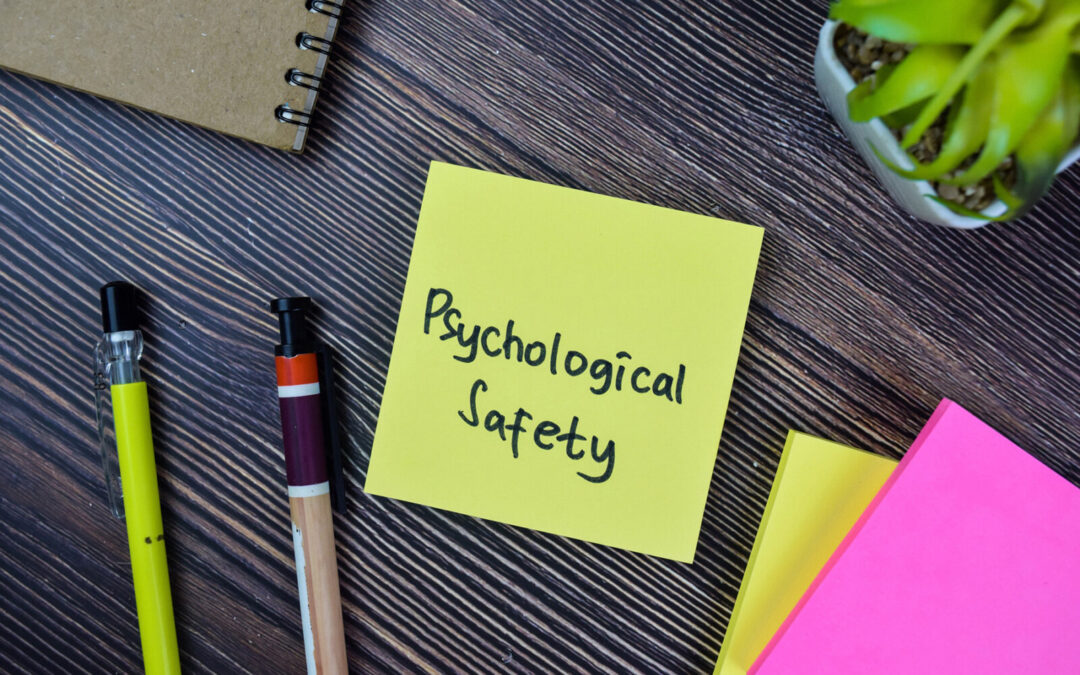Cyber-bullying, harassment, and other behaviours that can have a profound effect on employee well-being and sense of security are on the rise. It’s not enough to make sure the workplace is physically secure – it must also provide psychological safety and support.
In my opinion, we all got comfortable in our own home offices during COVID. Other recent changes include bad behaviour on social media and political discourse. With the reduction in face-to-face communication, leaders have simply forgotten to follow three important concepts – trust, transparency, and open communication.
There is a huge need to reduce the heightened level of negative (and sometimes nasty) discourse in today’s world. It’s an opportunity for HR to ensure their talent management strategies include a few key elements in addition to performance management, coaching, and regular one-on-one discussions to show employees they are valued. These include:
- Listening and hearing employees
- Applying emotional intelligence
- Asking the difficult questions and finding answers together
- Ensuring everyone is accountable for treating others with respect
Before making difficult decisions, leaders should hold focus groups with a sample of employees to ask what they would like to see in the workplace. Creating surveys and providing the results to employees is equally important. Following through and making the changes employees want to see is key to building trust, transparency, and loyalty. It sends the vital message that leaders care about their employees and what they have to say.
Leaders need to be coaches and mentors. Leaders need to have strong emotional intelligence – the ability to manage their own emotions and to recognize and understand the emotions of those around them. The five key elements of EI: self-awareness, self-regulation, motivation, empathy, and social skills are important for building rapport and gaining employee trust.
Leaders have often asked me why it’s important to know their employees. The simple answer is why not? As humans it is important to build relationships, to understand thought process, to gain insight into what makes others tick. Do you know your employees’ spouses and children’s names? Are they dealing with home challenges that might be impacting their work? What are their career goals? How can you help them achieve their goals? How can you help them feel fully secure at work – both physically and psychologically?
Asking difficult questions leads to a greater knowledge of who you work with, what their needs are, and where their passion is. This, too, is an important way to build trust and rapport with employees.
Leaders need to understand there is a growing issue for employees around mental wellbeing and safety. We need to recognize when people are struggling to be heard, or with mental wellness, stress, or burnout. Burnout and stress can show up in a variety of ways. Be on the lookout when employees are:
- Always tired
- Bad tempered
- Not meeting goals that would have been achieved easily in the past
- Absenteeism
- Keeping quiet in meetings when they were once open with ideas and recommendations
- Showing up late for work
It seems many of us have forgotten how to treat others with respect and that bullying, speaking to employees negatively, or ignoring their needs is common in today’s business world.
Today It is more important than ever to show respect, to speak to employees in a clear and concise manner that builds rapport, and support safety in the workplace. Treat employees as human beings. Remember the Golden Rule – “do unto others as you would have them do unto you”, and you won’t go too far astray.
As organizations return to the office, whether hybrid or full-time, it is important to continue treating colleagues and coworkers with respect. It is also important for all employees to participate in training that ensures they understand their part in creating and maintaining a truly safe workplace.
When was the last time your organization provided AODA, Harassment in the Workplace, or Health and Safety training? These programs should be successfully completed by every employee on an annual basis to meet legislative requirements, but also foster trust and transparency.
As leaders we need to ensure that respect, health, wellbeing, and safety is top of mind. No employee should feel disrespected or the need to leave their job because they have been bullied, harassed, or made to feel unsafe.
We need to look out for each other and treat each other fairly and with respect. Let’s build workplaces that are safe, free from harassment and bullying, and let’s maintain a workplace that ensures all employees are growing and developing as they want. Acceptance of others, emotional intelligence, and words that build a person up are the way to move forward. We need to be accountable and set an example so all employees will see the right way to be a leader.
Let’s continue to positively engage, motivate, and encourage employees to be the best they can be. There is no other accepted form of leadership that ensures employee well-being and sense of security.
Anne Bloom is a principal with The Osborne Group and can be reached at [email protected]






